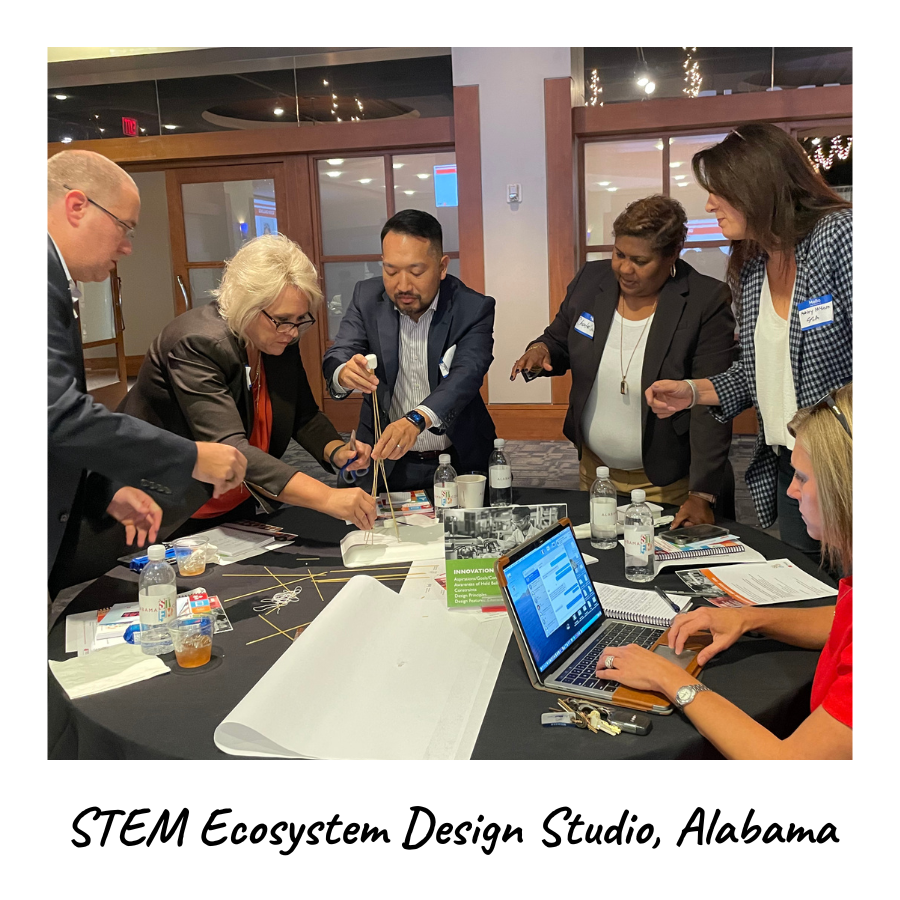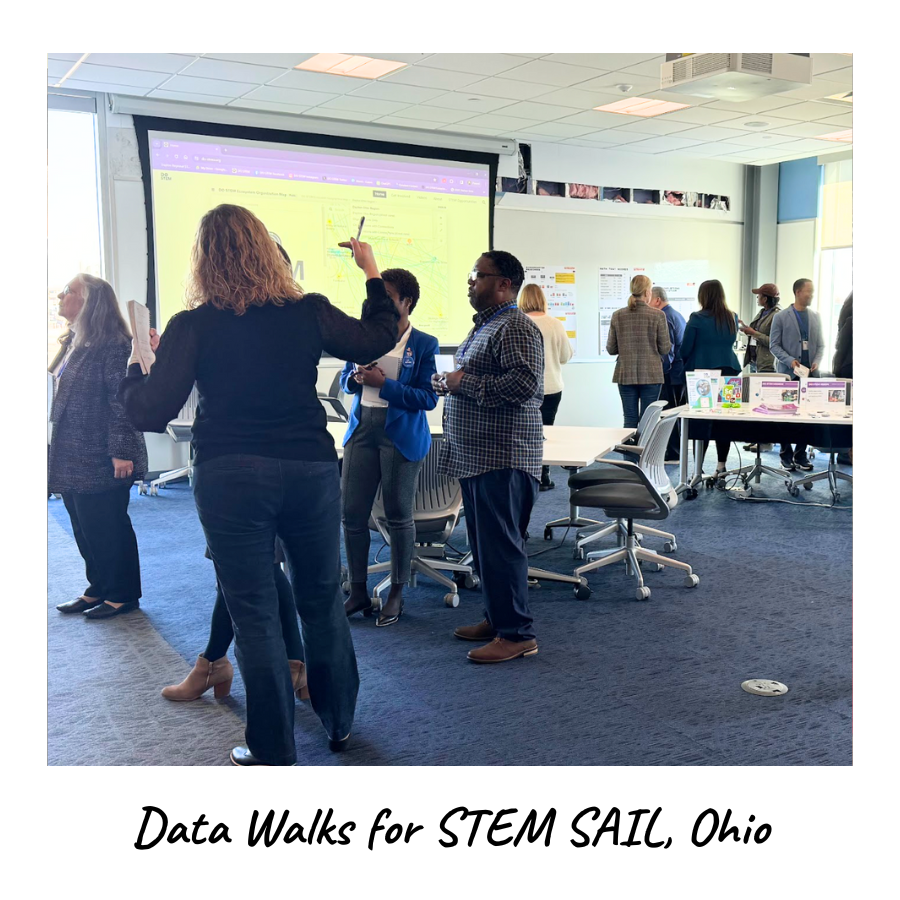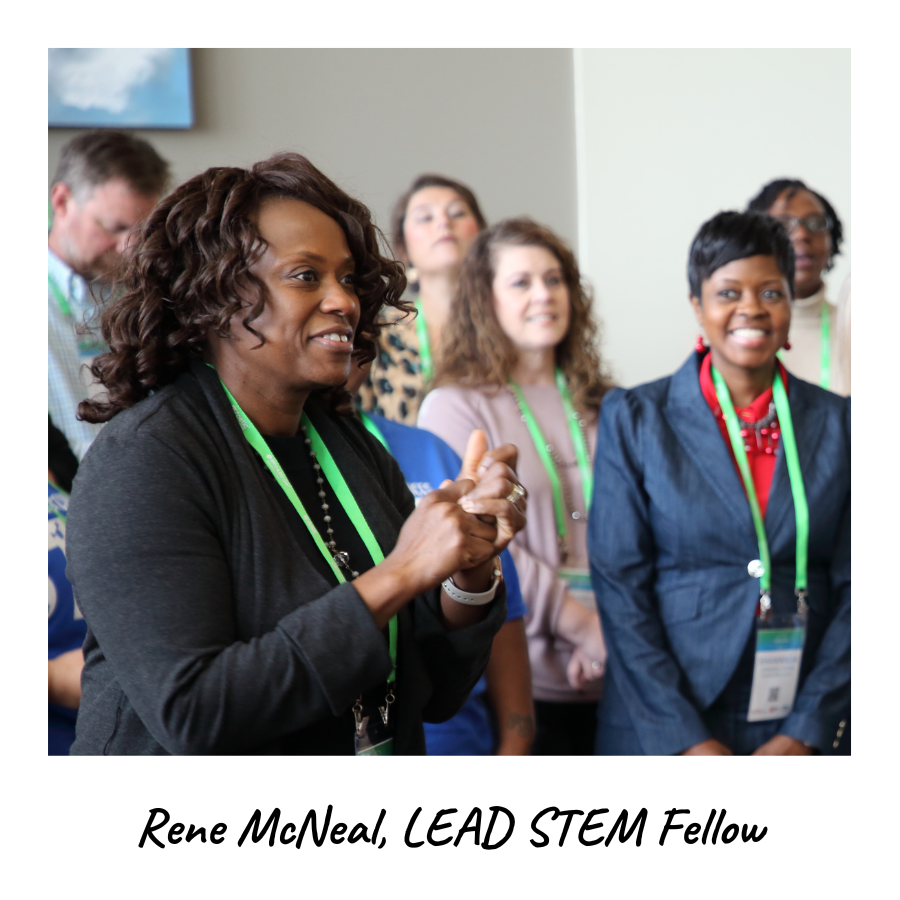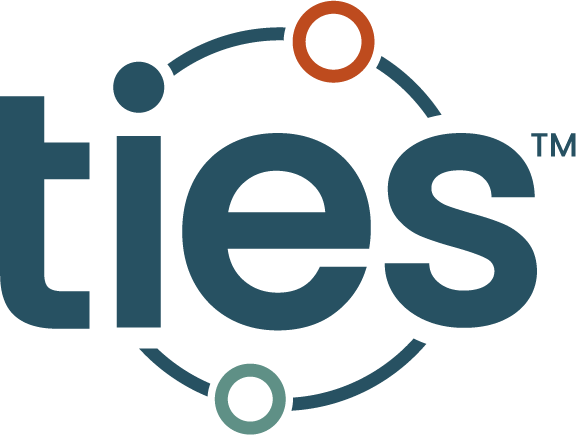Our Work
STEM Ecosystems
TIES serves as a pioneer in designing and strengthening STEM Ecosystems that foster collaboration across education, industry, community organizations, and government. Our ecosystem approach creates sustainable networks that expand STEM pathways for learners while addressing critical workforce needs.
Together, we can build vibrant STEM Ecosystems that transform communities and prepare the next generation for success.

STEM Ecosystem Design
TIES provides STEM Ecosystem Design consulting services to support communities, organizations, and regions in developing collaborative STEM learning environments. Our design process is rooted in research, best practices, and a deep understanding of the interconnected nature of effective STEM ecosystems. We customize our approach to meet the specific needs, context, and aspirations of each community or region we serve.
Key Activities:
- Needs assessments and gap analysis
- Strategic planning and goal setting
- Design studios and collaborative workshops
- Design principles development
- Partnership mapping and blueprint creation
- Measurement implementation
STEM Data Walks
TIES provides STEM Data Walk services as a collaborative process for generating insights, strengthening partnerships, and catalyzing data-informed action across organizations. These Data Walks model how groups can jointly make sense of data to advance STEM education, workforce development, and career readiness initiatives in communities.
Key Activities:
- Data literacy building
- Data contextualization through local perspectives
- Priority alignment and agenda creation
- Cross-sector relationship strengthening
- Structured activity facilitation
- Event logistics management


STEM Leader Development
TIES support STEM Leadership development focused on empowering and cultivating leaders within STEM Ecosystems. Our LEAD STEM Fellowship program offers personalized professional development and collaborative learning experiences that advance STEM initiatives across communities. We use a Train-the-Trainer approach to create sustainable models for statewide leaders to support the development and capacity building of regional Ecosystems.
Key Activities:
- Personalized leadership development plans
- Mentor connections and network building
- Capstone project design and implementation
- Systems-thinking cultivation
- Train-the-trainer program development
- Cohort-based learning community creation
